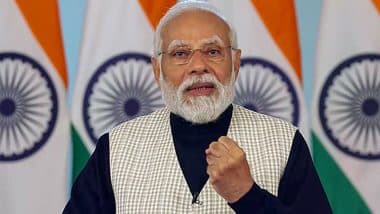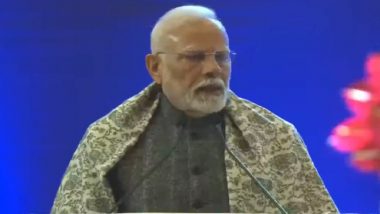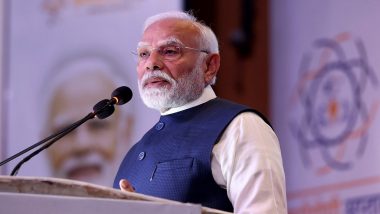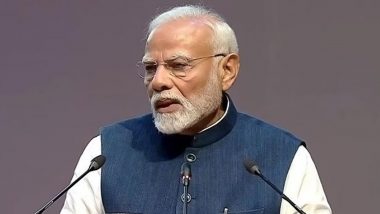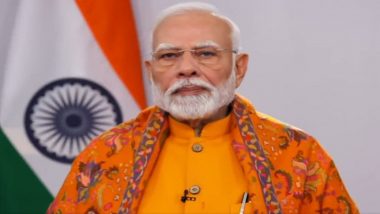New Delhi, January 4: India has become more strategically confident and proactive in creating and developing a "Bharat narrative", an article in China's Global Times has said, praising India's significant strides in the spheres of economic, social governance and foreign policy under Prime Minister Narendra Modi.
Global Times, a prominent state-run Chinese media outlet, has published the article penned by Zhang Jiadong, the director of the Center for South Asian Studies at Fudan University, Shanghai, that highlights India's remarkable achievements over the past four years. 'People of Lakshadweep Has Heart As Big as Ocean': Prime Minister Narendra Modi Says on Video Message After Coastal Island Visit, Promotes Tourism (See Pics and Video).
It acknowledges India's robust economic growth, improvements in urban governance, and a shift in attitude towards international relations, notably with China. "For example, when discussing the trade imbalance between China and India, Indian representatives earlier used to primarily focus on China's measures to reduce the trade imbalance. But now they are placing more emphasis on India's export potential," Zhang said in the article.
The article said that with its rapid economic and social development, India has become more strategically confident and more proactive in creating and developing a "Bharat narrative".
Furthermore, the article lauded India's foreign policy strategy under PM Modi, highlighting the nation's multi-alignment approach and bolstering ties with major global powers such as the US, Japan, and Russia while displaying a nuanced stance in the Russia-Ukraine conflict. PM Narendra Modi Giving Three Months Free Recharge to Indian Users Under 'Free Recharge Yojana' for Lok Sabha Election 2024? PIB Fact Check Debunks Fake Message.
The article noted that India's strategic thinking in foreign policy has undergone another change and is clearly moving toward a great power strategy. "Since Prime Minister Narendra Modi assumed power, he has advocated for a multi-alignment strategy, promoting India's relations with the US, Japan, Russia and other countries and regional organisations," Zhang said in the article.
"India has always considered itself a world power. However, it has only been less than 10 years since India shifted from multi-balancing to multi-alignment, and now it is rapidly transforming toward a strategy of becoming a pole in the multipolar world. The speed of such changes is rarely seen in the history of international relations," he said.
"In the political and cultural spheres, India has moved from emphasising its democratic consensus with the West to highlighting the 'Indian feature' of democratic politics. Currently, there is even more emphasis on the Indian origins of democratic politics," the article published on January 2 said. This shift, the author asserted, reflects India's ambition to escape its historical colonial shadow and act as a "world mentor", both politically and culturally.










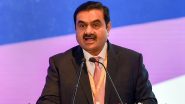


 Quickly
Quickly








